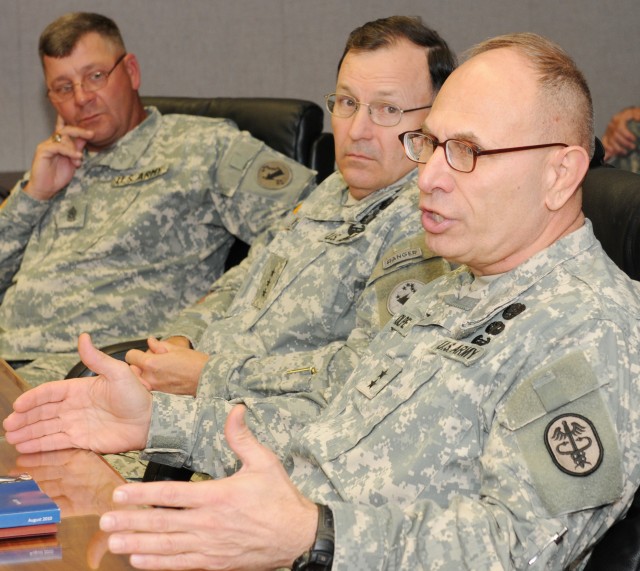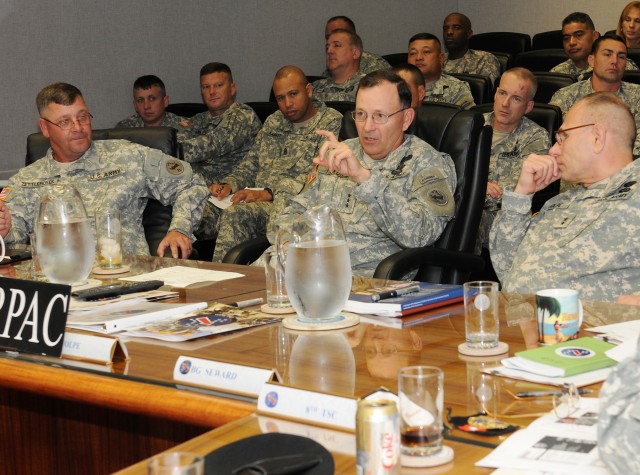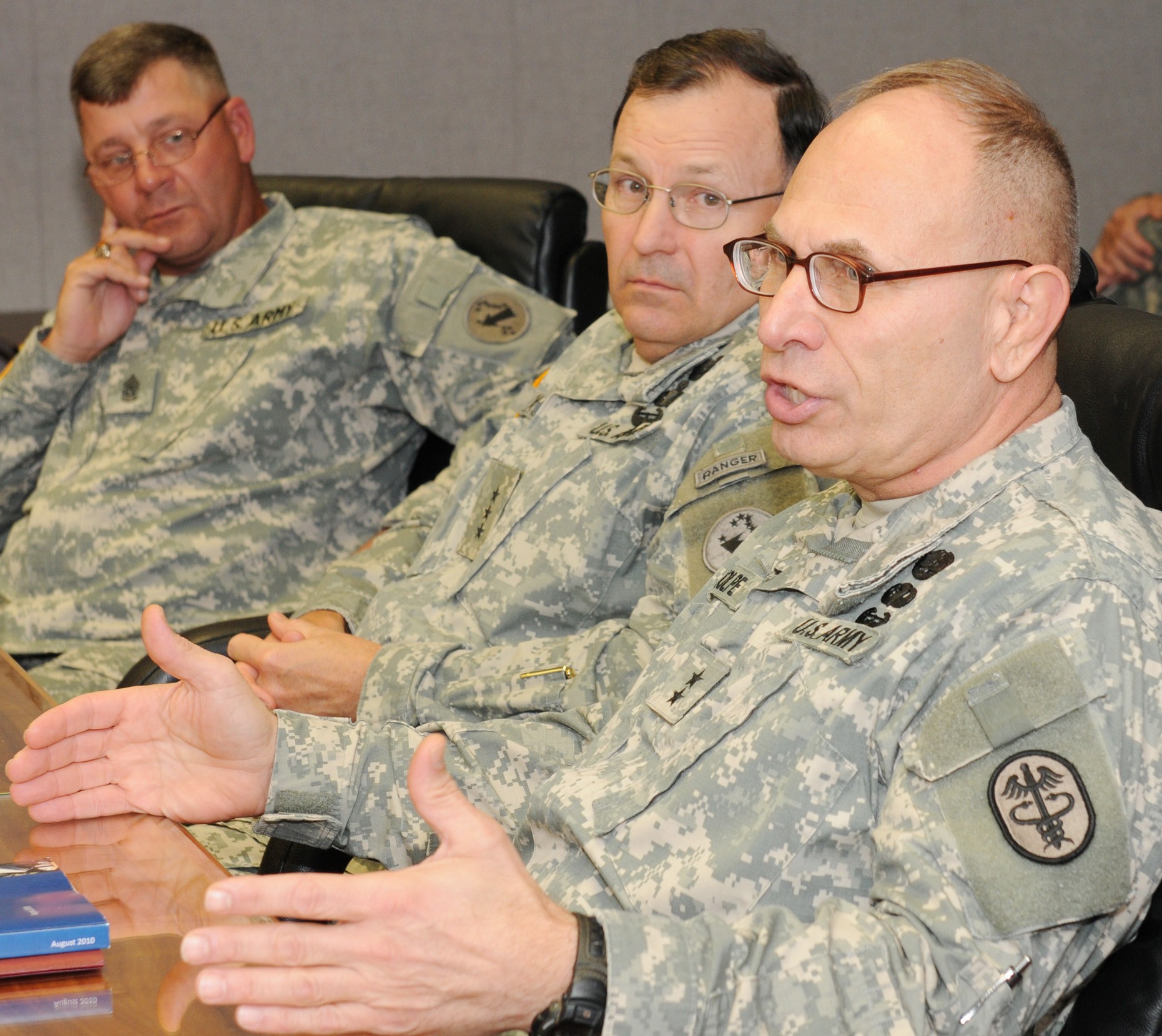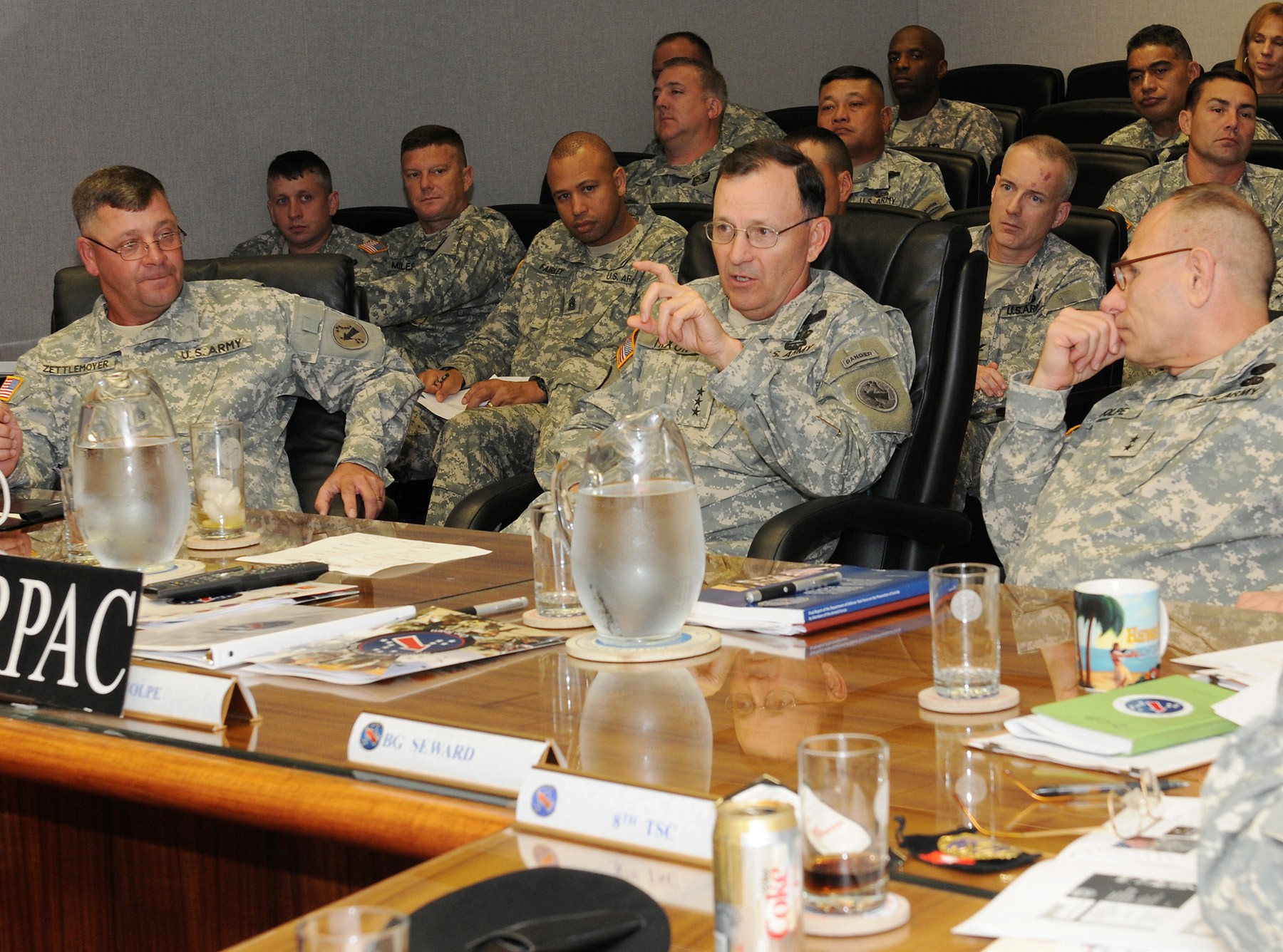FORT SHAFTER, Hawaii - The U.S. Army Pacific Surgeon's Office discussed suicide prevention and wellness programs at the quarterly Pacific Health Promotion Council meeting Jan. 7 at USARPAC headquarters.
"The goal of the council is to have a better appreciation of the significance of suicide and wellness issues throughout the command," said Col. Joseph S. Pina, USARPAC deputy surgeon.
It was an opportunity for the commander to have bilateral communication with his commanders and senior staff on these issues, said Pina.
The quarterly council featured three key speakers: Maj. Gen. Philip Volpe, commander of Western Regional Medical Command at Joint Base Lewis-McChord, Wash.; Brig. Gen. Keith Gallagher, commander of Pacific Regional Medical Command at Tripler Army Medical Center, Hawaii; and Col. Carroll J. Diebold, chief of psychiatry at TAMC.
"Efforts to gain a better understanding of the status of suicide prevention and wellness programs for Soldiers and Families is done so by getting status updates from major subordinate commands and theater enabling commands, including U.S. Army Alaska and U.S. Army Japan," said Pina.
Units from throughout USARPAC participated in the council meeting via video teleconference. Participants included leaders from USARAK; USARJ; 25th Infantry Division at Schofield Barracks, Hawaii; 18th Medical Command, Fort Shafter; Joint Base Lewis-McChord; , and 8th Army in South Korea.
Council members discussed the findings of the DoD's recent task force study on suicide prevention. Volpe was the co-chair for that task force.
The meeting also featured 1st Sgt. Richard S. Miles, assigned to Echo Troop 2/6 Cavalry, 25th Combat Aviation Brigade at Wheeler Army Air Field, Hawaii, who completed Master Resiliency Training.
"The training focused on the six core competencies of resiliency: self-awareness, self-regulation, mental agility, reflection, strength of character and optimism," said Miles. "It enables leaders to train Soldiers to be more agile in the emotions and reaction to different circumstances, which may be beyond their control; and equips them with the skills to bounce back."
Miles discussed MRT activities within USARPAC regarding improving resiliency
training for the betterment of Soldiers and stressed the importance of promoting senior and junior leadership involvement.
"Overall, the council got a corporate view of suicide prevention and wellness across the Army and the Department of Defense," said Pina. "The command will be applying those findings to USARPAC and exploring a more comprehensive approach to the way ahead."




Social Sharing